Mali: The struggle for food security in Ménaka
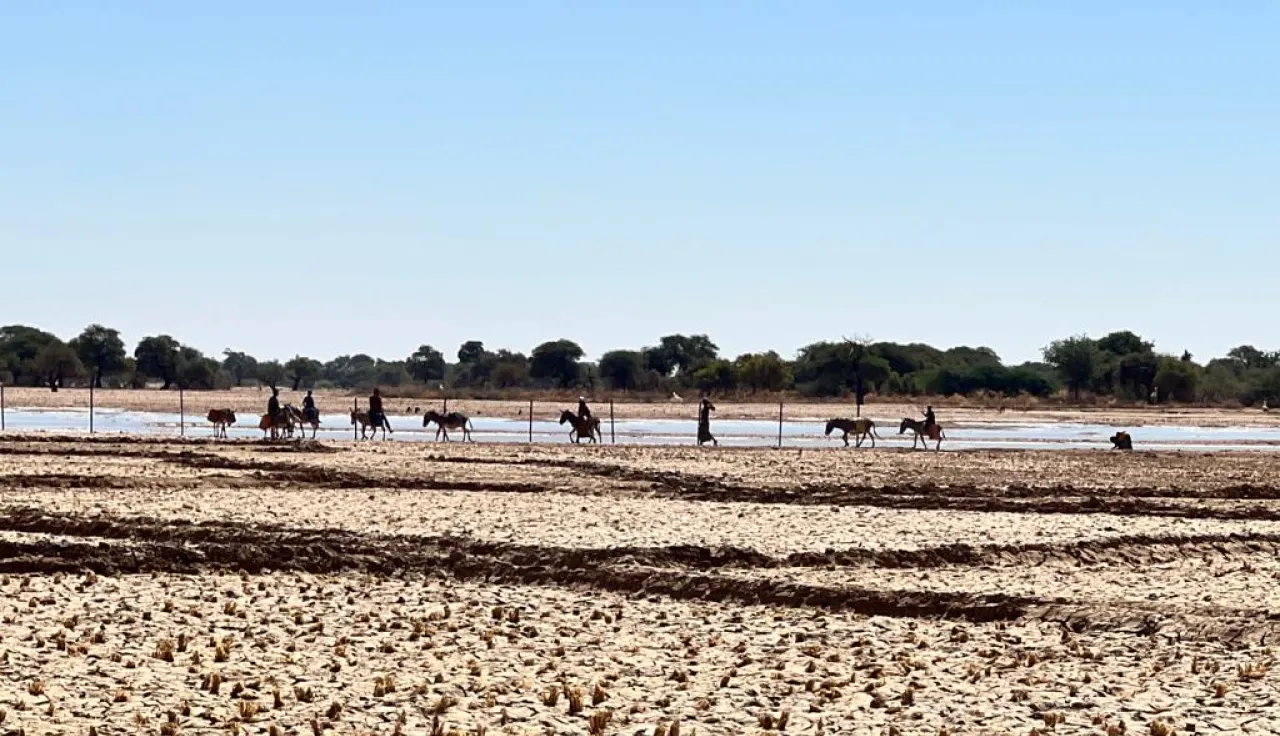
In Ménaka and the rest of the Liptako-Gourma region, the agricultural cycle has been disrupted by increased flooding and extreme drought. At the same time, the armed conflict in the region is preventing food, seed and livestock from circulating freely, severely impacting the agriculture industry. As a result, food is scarce and prices are skyrocketing, putting the inhabitants’ food security at risk.
The sun is blazing and the heat is suffocating. Over 700 people are using pickaxes and shovels to move dozens of cubic metres of soil from the site of a pond that is drying up. The work is exhausting but crucial for the survival of Ménaka and its inhabitants.
Cracks in the ground reveal where water used to flow. Rainfall has become so scarce and irregular that there is nothing left of the pond other than some puddles scattered here and there. Dromedaries, cows and goats drink the water under the watchful eye of young girls who have come to fill containers with water for their families.
The International Committee of the Red Cross (ICRC) has launched a community project to remove 4000 cubic metres of sand and clay from the bottom of the pond to increase the pond’s water stocking capacity. When the project is finished, it should be able to hold an additional three or four months’ worth of water. This activity will also reduce the risk of flooding if water levels rise.
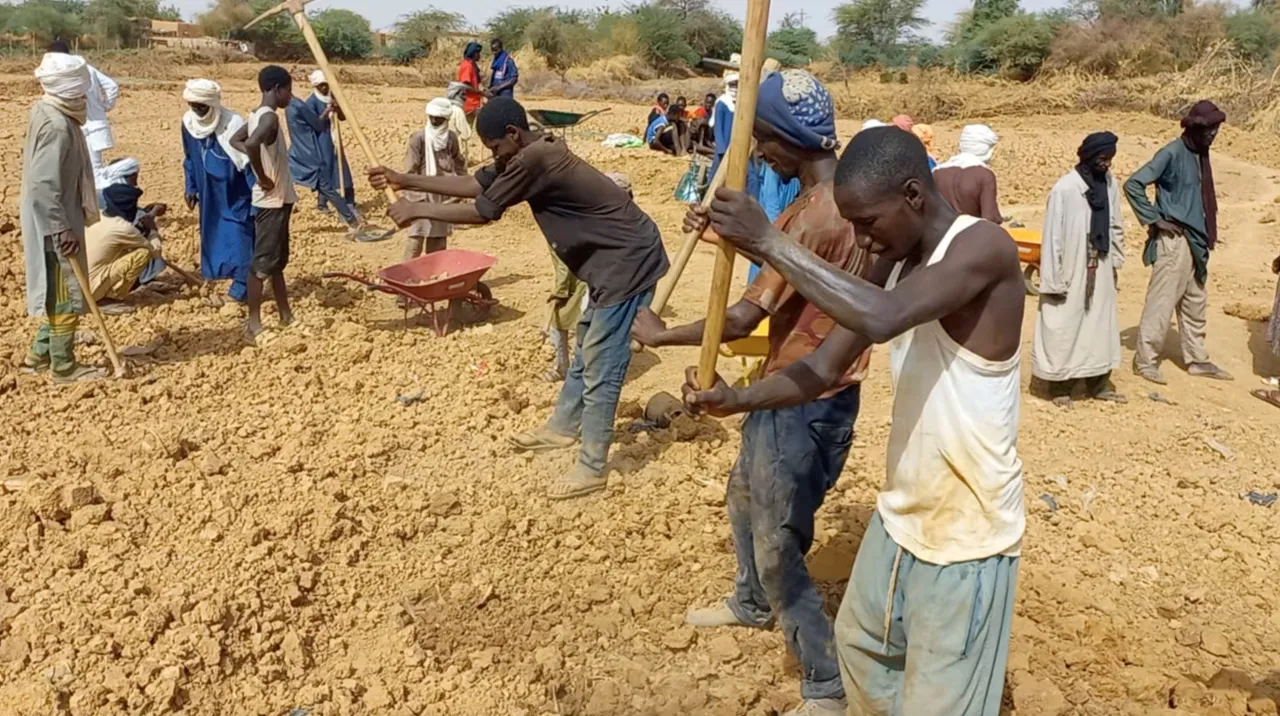
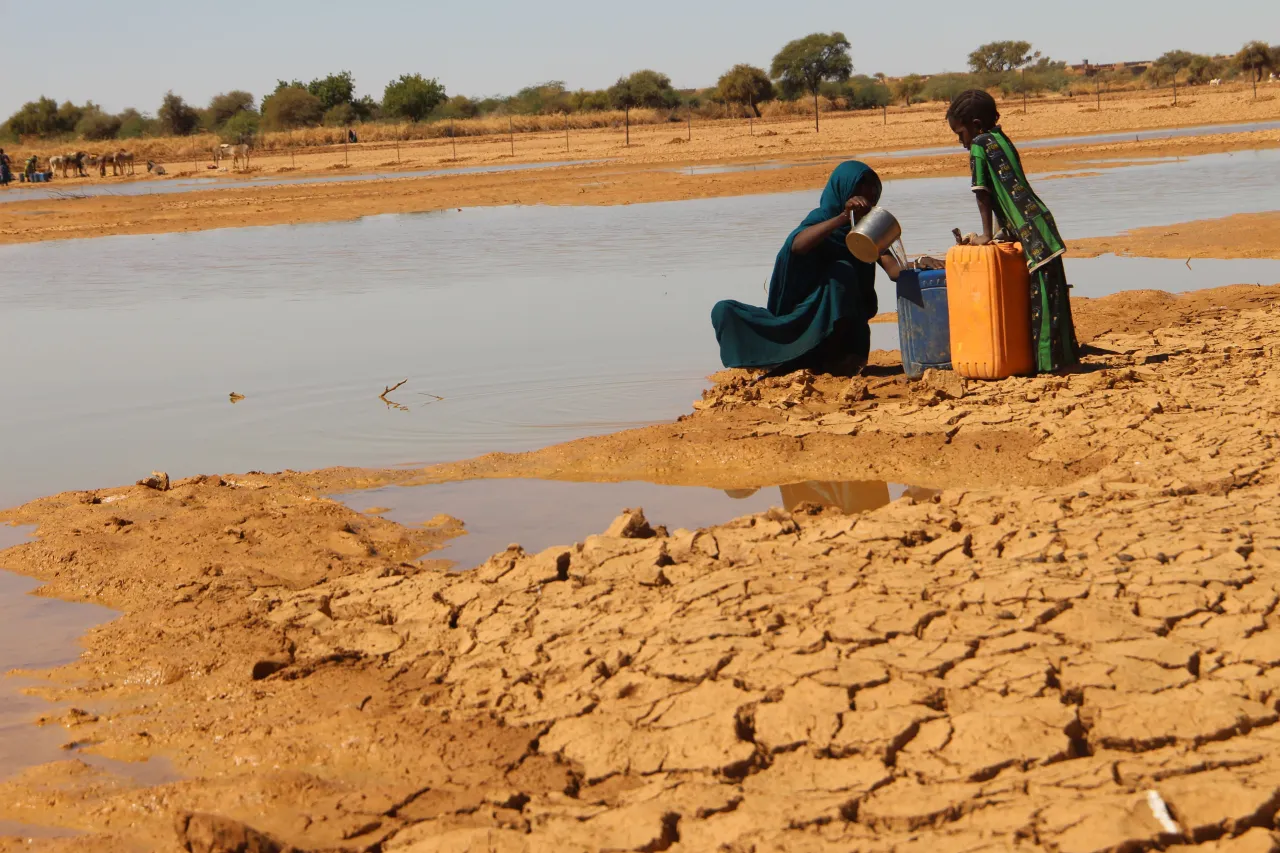
The pond is surrounded by private market gardens. In one of them, Bintou is removing weeds from seedling plots. She is a mother of five and has been growing fruits and vegetables to sell for decades. Like over 300 families in Ménaka, she now benefits from the support of the ICRC.
“I grow tomatoes, cabbages, peppers, beets, potatoes, watermelons, melons and many other things,” she proudly explains. “Part of what I grow allows my children to have balanced, varied meals. Another part is for the restaurant I run on the side. The rest is sold at the market. And I can even use my crops as feed for my animals.”
A pond filled with sand carried by storms
The pond is threatened by the expanding desert and storms that sweep in enormous quantities of sand. The pond’s capacity to stock water has decreased over time. When the first winter rains arrive, it overflows and floods neighbouring gardens and homes. But by December, it has already begun to dry up.
The idea that the pond could dry up entirely is a source of anxiety for the town’s inhabitants. Even if the water is not potable, many families have no choice but to drink it. In this harsh environment, water is essential to breed livestock, farm fish, make bricks and irrigate gardens.
“Our gardens mean everything to us,” says Bintou. “When there is no more water, we have to dig wells and hope that they won’t dry up too quickly. We also have to buy pumps to draw water.”
A number of factors make life difficult for farmers, including climate change. “Evidently, water is increasingly rare, which makes the pond dry up more quickly,” says Djibrilla Maiga, an ICRC agronomist. “But you also have to take into account the stray animals that are ravaging plantations, as well as the farmers’ approximate understanding of food production and conservation methods.”
Armed conflict and food insecurity
The lack of security makes it challenging for people and goods to circulate. It has also become difficult to reach Gao, a city where farmers have access to high-quality seeds and fertilizers. While more wealthy farmers can afford to pay a high price for the products they need, this is far from the case for many others.
The violence has also made it impossible to use trade routes that lead to neighbouring regions and countries. As a result, people’s incomes have plummeted.
“We have been supporting the farmers of Ménaka since 2016,” says Djibrilla. “At their request, we assessed what kinds of support we could provide before opting to distribute high quality seeds, farming tools, fencing and pumps. The situation is still challenging as overall production declines and the cost of food is soaring.”
Some products are still available, but they are too expensive for most inhabitants. A 100 kg sack of millet has gone up from 45 euros to 76 euros, while the price of a sack of rice has risen from 23 euros to nearly 50 euros.
The ICRC is working with the Agronomic Research Centre of Mopti and the National Seed Service to improve food security by supporting projects that seek to multiply seeds and by distributing seeds and tools to farmers. We are also collaborating with national and local agriculture authorities to provide seeds, tools, equipment and/or fertilizer to families living in areas affected by armed conflict – another factor that exacerbates the day-to-day lives of the inhabitants of Ménaka and the rest of the region.
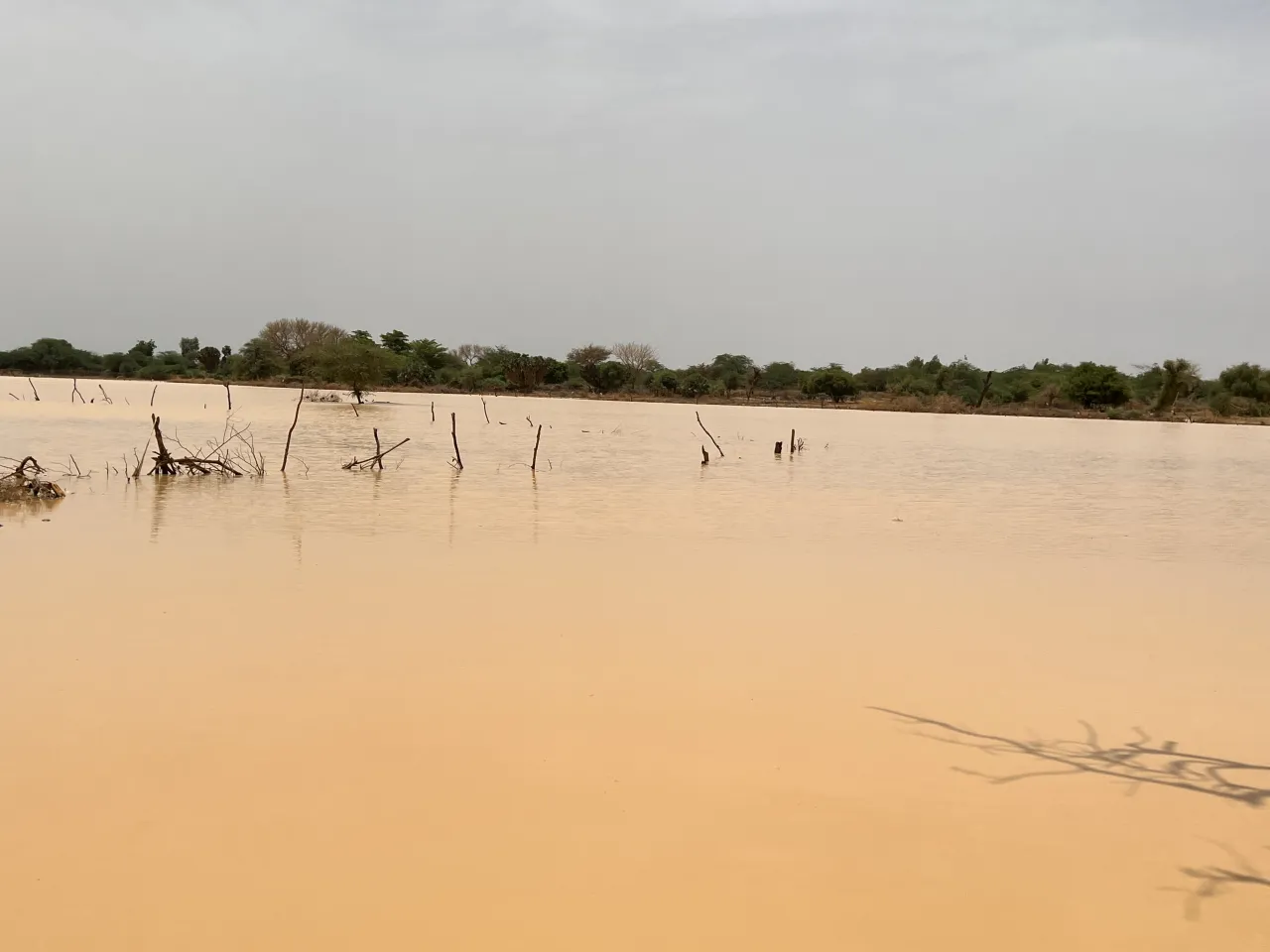
Armed conflict combined with climate change has serious humanitarian consequences, leading to food insecurity for the most vulnerable people. This concerns children, in particular.
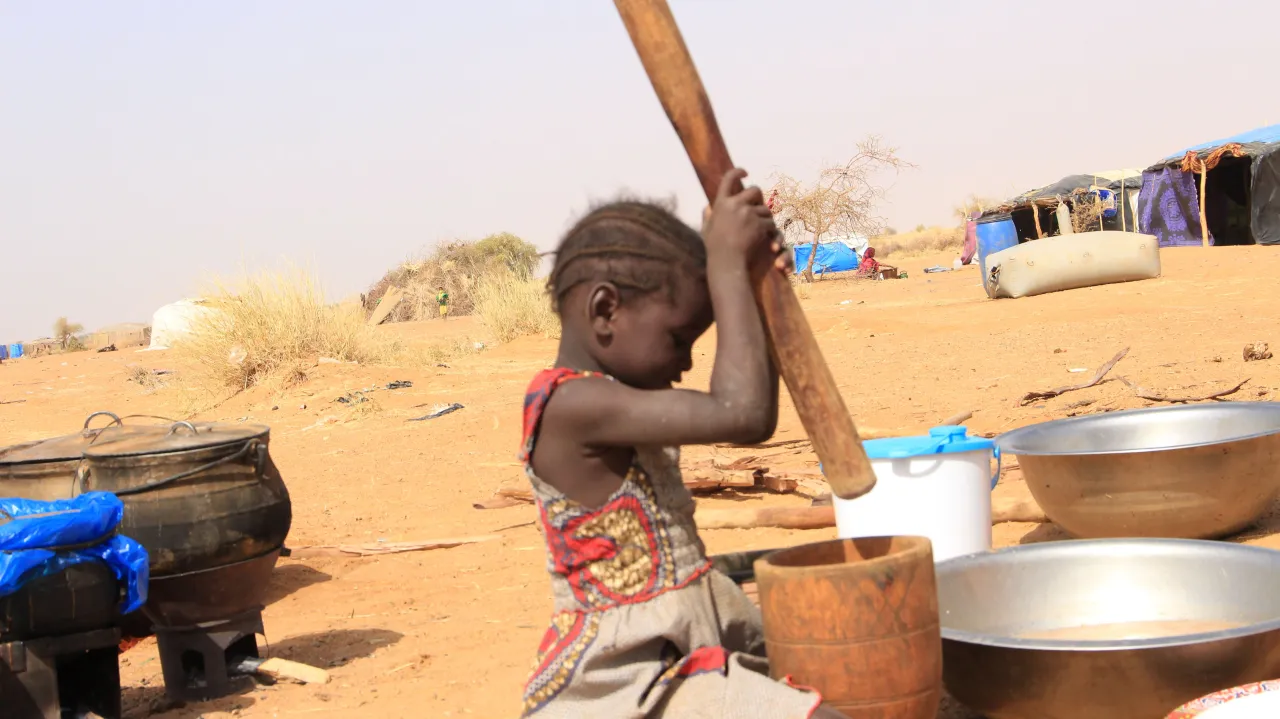
Many cases of malnutrition remain undetected
In the region of Ménaka, nearly 58,000 people have been displaced out of about 200,000 inhabitants. Local residents and displaced people living in Ménaka are finding it increasingly difficult to get access to food. The need for grains, root vegetables, oilseeds, milk, eggs, meat and fish is urgent, but the market in Ménaka is struggling to replenish supplies.
“Many families have gone from having three meals a day to two and the poorest families only have one meal a day,” explains Djibrilla. “They depend on loans or help from their neighbours or humanitarian workers.”
Ménaka’s children are suffering. The Integrated Food Security Phase Classification indicates that 25,344 children between the ages of 6 and 59 months are suffering from severe malnutrition.
According to Hamidou Dicko, who is in charge of a nutrition health centre supported by the ICRC, 734 children suffering from severe malnutrition have been registered in the last two months (June-July 2024) and 44 of them have health complications. An increasing number of women who are pregnant or nursing are also suffering from malnutrition.
“The unit in charge of nutritional recovery is working with the community to help people suffering from severe malnutrition,” says Hamidou. “We are also putting out campaigns to promote good eating practices for children and distributing nutritional supplements, while monitoring their condition closely. But many cases of malnutrition are not brought to our attention due to the lack of testing and access to health care.”
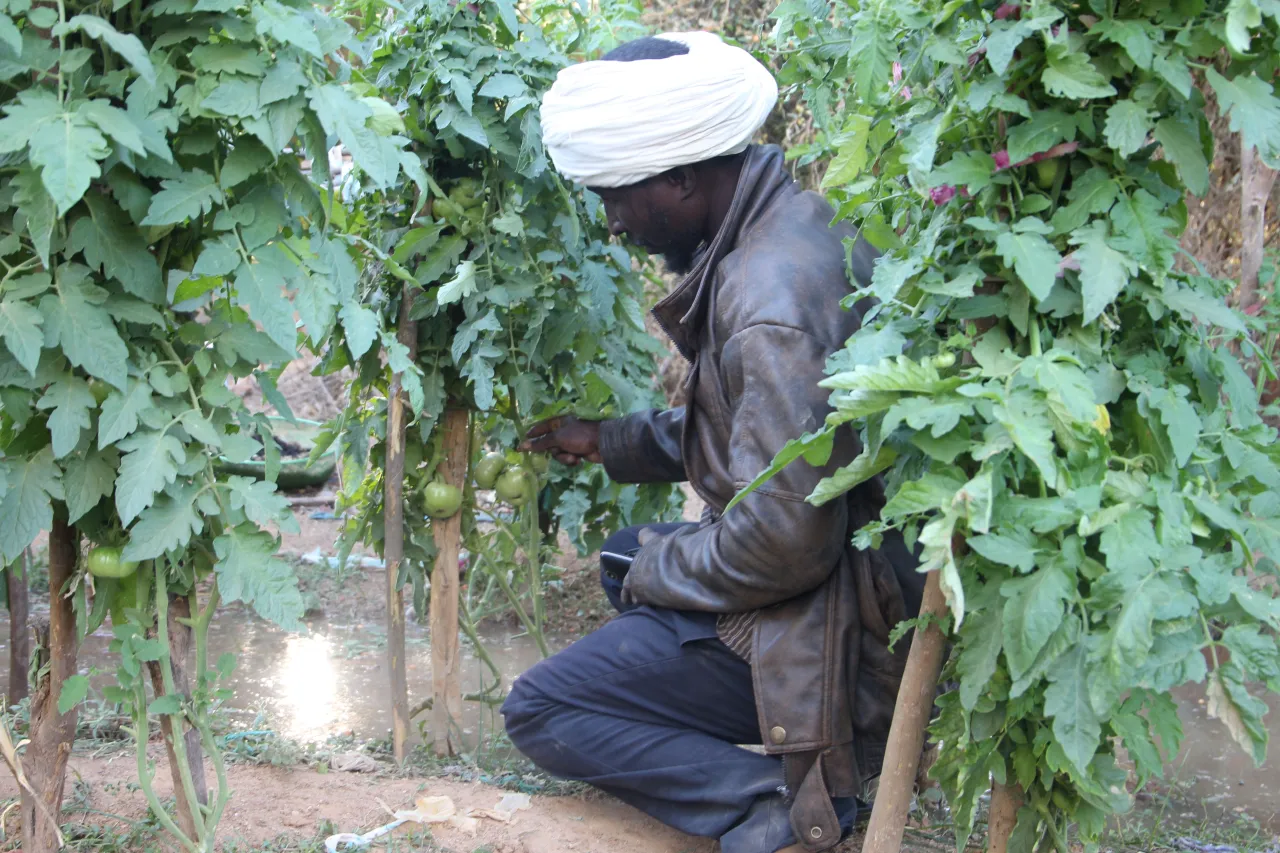
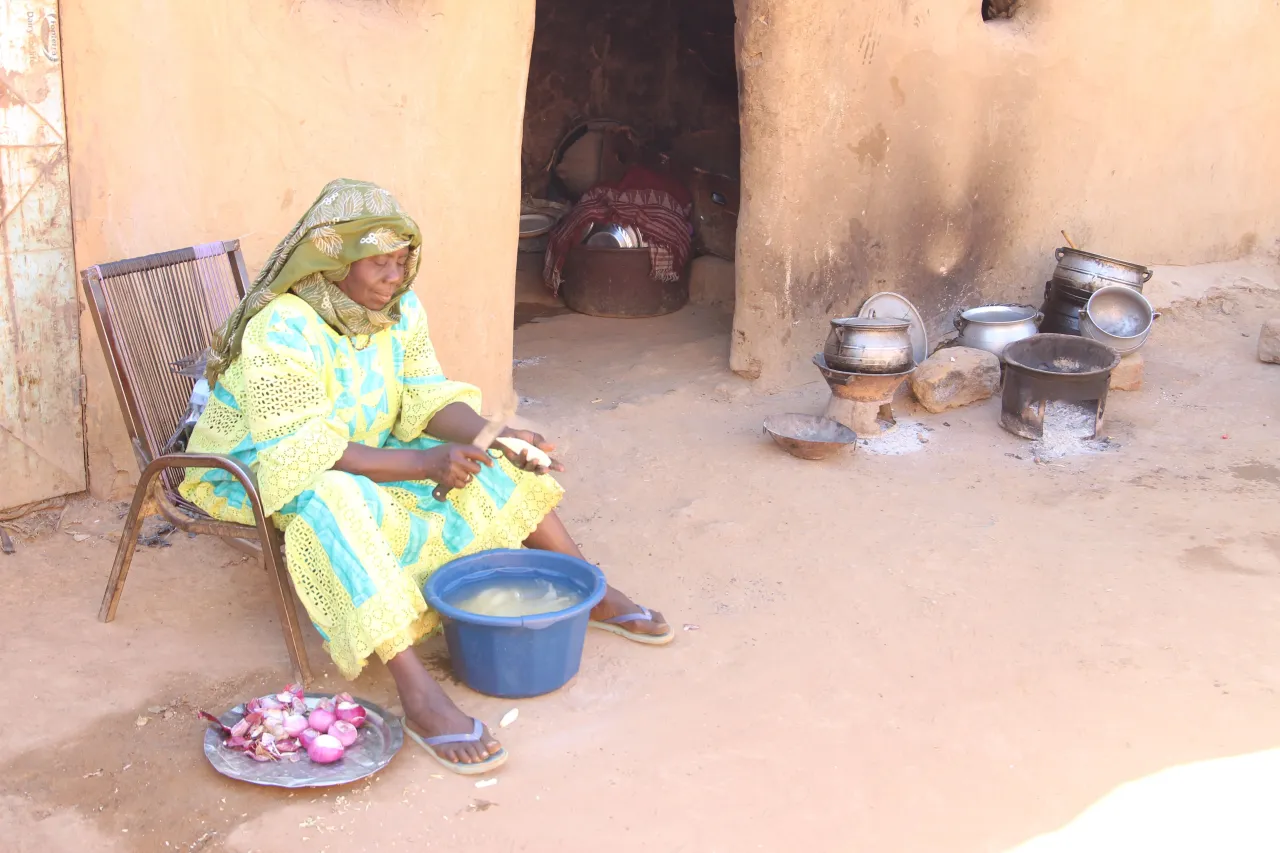
Projections on food production
The 2023-2024 crop year was defined by little-to-moderate, irregular rainfall. The growing season began late in most of the country, particularly in the centre and the north, which received less rainfall than the south.
According to the Famine Early Warning Systems Network, during the period between harvests (May-September), households continued to have less access to food staples in areas affected by the conflict, particularly in Ménaka, due to the high price of food and an overall decline in income.
The 2024-2025 crop year is underway. The Mali National Directorate of Agriculture estimates that total grain production will be slightly over 11 million tons, an increase of more than 10 per cent from 2023.
The ICRC distributed a total of 50 tons of rice and 40 tons of certified millet seed to 6,000 small-scale producers (comprising 36,000 people) who provide food to households in the regions of Mopti, Gao and Timbuktu. In the region of Ménaka, we will be providing eight market gardening groups with higher quality seeds and fencing to protect their crops from animals between now and the end of the year.
We intend to carry out these same activities for the 2025-2026 crop year, and to slightly increase the number of people and groups who benefit from our support.



